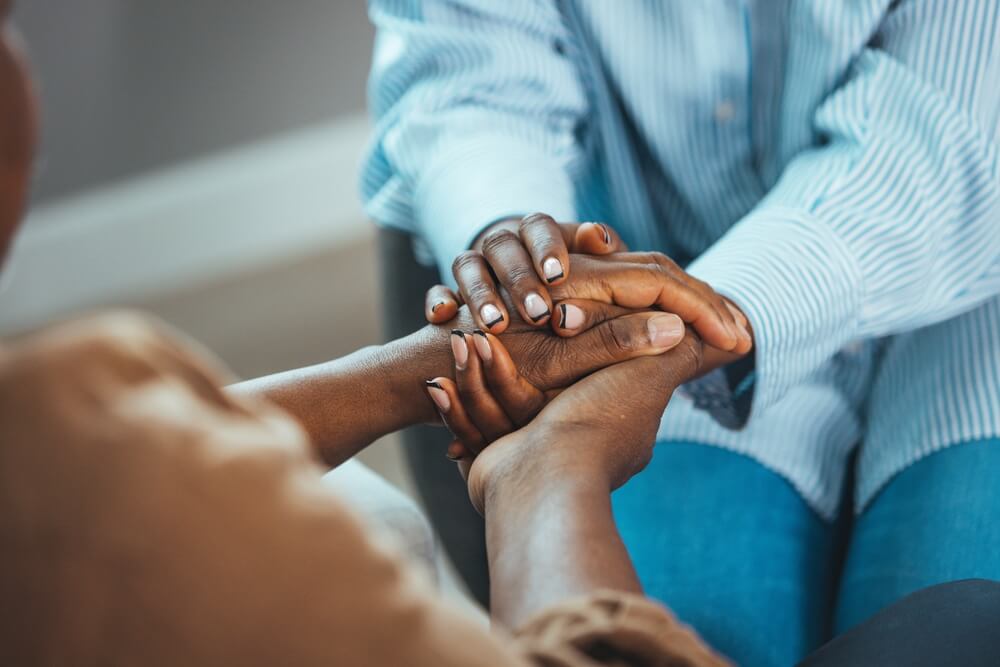It is tough to make the topic of pregnancy loss light. Having a miscarriage is a life event where a pregnant woman loses her baby, but most often, that is not the only loss she experiences in that process. Technically, doctors take care of the miscarriage medically, and most often, the patient recuperates quite quickly from the event.
The problem is the emotional side of pregnancy loss: How to cope with a miscarriage and continue your everyday routine after losing your future child. All these questions must be answered by specialized, experienced professionals with the right advice, recommendations, tactics, and empathy to help their patients. Experts at My OBGYN Specialists do precisely that and have been trained and educated in offering miscarriage counseling and guidance to women and couples who just lost a child.
How Often Does it Happen?
Miscarriage rates show that from 10 to 25 percent of pregnancies end up in a miscarriage during the first trimester, so regardless if your baby was planned or sudden, handling the grief of loss is not something one can go through alone, but sometimes even having a partner by your side does not help.
It is quite apparent that there is not much you can say to comfort the person who has gone through pregnancy loss, and this most often is also true for the person’s partner. Miscarriage rates also point out that around one million women every year go through a miscarriage experience. Imagine how many people go through devastating pain and suffering annually and how many people around them are affected by the event.
How to Cope with a Miscarriage?
Coping strategies for miscarriage are various, and they most definitely vary from person to person. A pregnancy loss is a traumatic event for both the body and the person’s mind, and people often say that traumatic events either break people up or pull them even closer together.
Different research shows that couples who went through a miscarriage together have a 22% more likeliness to break up than others. This occurs for a few reasons, as pointed out by experts:
- Men and women grieve differently, bringing much tension into the relationship.
- The partner who carries the baby most often starts to feel like a parent a lot sooner than the other partner (because their life changes drastically after finding out about the pregnancy, and they need to adjust their daily life to that), making the loss much harder.
- The sole fact that a person’s body has to go through weeks of bleeding in some instances, flu-like symptoms, removing the fetus if it is not naturally progressing, and other traumas make the partners’ positions completely different in relation to the miscarriage and the aftermath.
Even if none of those reasons mentioned above were true, grief as an emotion is very heavy and complicated, and dealing with grief in a partnership can be quite challenging. If you and your partner are going through grief together for the first time, there will be a very steep learning curve that you can either use to your advantage or simply decide to part ways.
Breakups after a miscarriage usually occur because either the person isolates themselves to go through the experience of losing a child alone, or they distract their mind with different content, not paying attention to how that makes the other person in the relationship feel. Another research done in 2003 shows that around 32% of women felt distant from their partner almost a year after the miscarriage, while 40% felt disconnected in their sexual life.
Breakup After Miscarriage

Breakups are a very common occurrence, and they happen to everyone. Events such as a miscarriage are quite heavy, and there is no way of knowing how it will impact your relationship with a partner. Some couples go through pregnancy loss and get even more connected and close, while others cannot make it, and both scenarios are perfectly fine.
Many specialists have worked on creating some guidance and recommendations on how to deal with the loss for couples, so below, we are bringing some constructive advice that might help you and your partner stay strong and push through such a horrible turn of events.
Communicate
Communication is crucial in a situation such as this one because sharing how you feel sets you free and makes your partner understand you and act in accordance with that. If you are not ready to speak to each other, you can try talking to a professional separately or together in miscarriage counseling sessions.
Different professionals might be of assistance, such as a doctor, a midwife, a counselor, a psychotherapist, etc. There are various options to choose from, primarily due to the tremendous impact of social media and the amount of information available to you in just one click. Whatever option you choose, and whatever feelings you feel, make sure you understand that they are valid, they are yours, and you need time to process them and move on.
Communicate your needs clearly and openly so your partner can be there for you in the way that you need.
Grieving Rituals
However silly it might sound when reading it, grieving rituals have been shown to help people go through traumatic events because they offer a sense of closure in situations where closure was not an option, such as a miscarriage. In grieving rituals, you prepare your body and mind to move on by giving honor to the pregnancy itself, to the child you lost, and sometimes by performing a symbolic gesture such as planting a tree or lighting a candle.
Avoid Blaming Each Other
Both partners must understand that it is no one’s fault that the pregnancy loss occurred. Blame never helped anyone overcome a situation and will most definitely not help you and your partner overcome grief and sadness after a miscarriage. So, try to avoid finding a “proper reason” for the events and focus more on overcoming it and hoping for a better future.
Support

Make sure that when you become ready to work on overcoming the loss, you find support in different ways. Aside from the support of your partner, it is very important to connect to people who might be experiencing similar loss and to people who have been trained to speak about events such as a miscarriage and can offer constructive advice and support.
Your partner is not the only person “in charge” of supporting you because they, too, are probably in pain, so try dealing with grief using other available mechanisms and support networks. It is not shameful to ask for help because we all need it at some point, so reach out and get additional support from an external source. This might be very effective for your relationship as well!
We Are Here!
Going through a pregnancy loss is a very painful, disturbing experience, so our clinic decided to enable different services which would be of use to persons who have gone through such a traumatic event. You are not alone, call us and get support. We are here for you!


